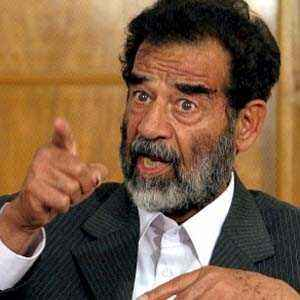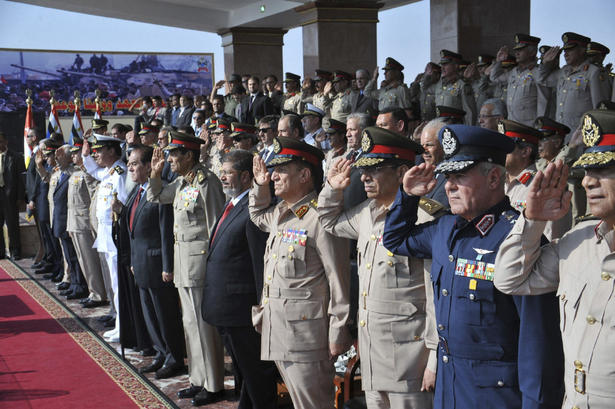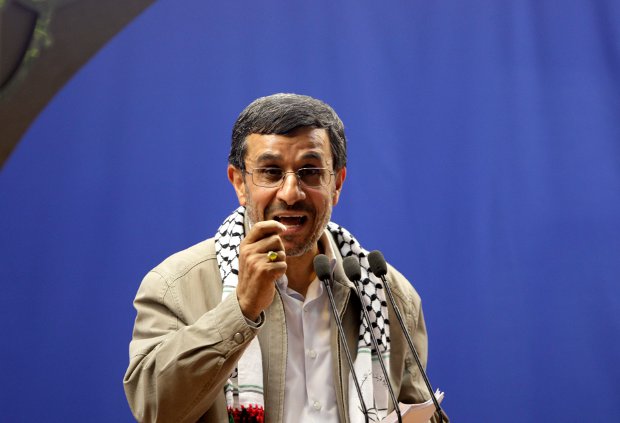 The process of shaping post-revolutionary Egypt to conform to the postmodern imperial world is proceeding apace. Egypt’s long history of invasion and occupation by first France (under Napoleon) and then Britain, and less formally from 1970 on under first Sadat and Mubarak, means there is a strong secular tradition, and the current attempt by Islamists to reverse this accommodation of western norms—’good’ and ‘bad’—is meeting fierce resistance, with women and their ‘rights’ at the forefront.
The process of shaping post-revolutionary Egypt to conform to the postmodern imperial world is proceeding apace. Egypt’s long history of invasion and occupation by first France (under Napoleon) and then Britain, and less formally from 1970 on under first Sadat and Mubarak, means there is a strong secular tradition, and the current attempt by Islamists to reverse this accommodation of western norms—’good’ and ‘bad’—is meeting fierce resistance, with women and their ‘rights’ at the forefront.
Though we hear complaints that Egyptian women are having a tough time these days, fearing restrictions by Islamists on their public lives, at least two prominent women have already left their mark, defying Egypt’s move towards a more religious-focused society.
Middle East
Feminist monkey wrenches in Egypt’s revolution
- Written by Eric Walberg Эрик Вальберг/ Уолберг إيريك والبرغ
Canada-Syria: White dominions, brown colonies
- Written by Eric Walberg Эрик Вальберг/ Уолберг إيريك والبرغ
 France and Britain have begun to circle Syria like vultures (my apologies to vultures, who politely wait for their prey to die). They plan to save Syria from chemical bombs – a surreal replay of Suez 1956, where France and Britain cooked up a pretext to invade Egypt with the US posing as the more restrained gang member, not to mention Iraq 2003, when they reversed their roles.
France and Britain have begun to circle Syria like vultures (my apologies to vultures, who politely wait for their prey to die). They plan to save Syria from chemical bombs – a surreal replay of Suez 1956, where France and Britain cooked up a pretext to invade Egypt with the US posing as the more restrained gang member, not to mention Iraq 2003, when they reversed their roles.
Meanwhile, Canada sings on demand for its US-Israeli sponsors. The Canadian government solemnly announced this week it is ready -- if asked by NATO -- to deploy the Canadian Joint Incident Response Unit, which handles chemical, biological and radioactive attacks. Canada will also send a Disaster Assistance Response Team to provide clean water in Syrians, as well as engineers and staff who can help set up a field hospital. A friendly navy frigate is already offshore.
Egypt's Morsi: Biting the bullet
- Written by Eric Walberg Эрик Вальберг/ Уолберг إيريك والبرغ
 At last Egyptian politics is moving. President Mohamed Morsi is slowly building on his summer 'coup', when he stared down Egypt's generals and put his men in the top army and defence positions, following terrorist attacks in Sinai which the army, so old and bumbling, so involved in Egyptian internal politics, failed to prevent.
At last Egyptian politics is moving. President Mohamed Morsi is slowly building on his summer 'coup', when he stared down Egypt's generals and put his men in the top army and defence positions, following terrorist attacks in Sinai which the army, so old and bumbling, so involved in Egyptian internal politics, failed to prevent.
Now, he has stared down Israel's generals, and dealt as an equal with US President Obama to bring US pressure on Israel to back down in its planned invasion of Gaza. Egyptian Prime Minister Hesham Qandil was sent to Gaza 16 November at the height of Israel's current Operation Pillar of Cloud, forcing Israeli President Netanyahu to call a unilateral truce to avoid killing the Egyptian leader. US Secretary of State Hillary Clinton rushed to Cairo to show Washington's support for Morsi, making it clear that Obama was starting a new leaf, finally understanding who his real ally is in the Middle East, and putting Netanyahu in his place. There will be no repeat of Israel’s humiliation of Obama with the 2008 Operation Cast Lead.
Iran vs the Empire: Fighting dollarization
- Written by Eric Walberg Эрик Вальберг/ Уолберг إيريك والبرغ
 The West's attempts to destroy the Iranian economy through heightened sanctions—including most imports, oil exports and use of banks for trade operations—is having its affect. According to Johns Hopkins University Professor Steve Hanke, Iran is facing hyperinflation, with a monthly inflation rate of nearly 70% per month and its national currency, the rial, plummeting in value against western currencies. Iran is the latest casualty to be placed on his Hanke-Krus Hyperinflation Index, which includes France (1795), Germany (1922), Chile (1973), Nicaragua (1986), Argentina (1990), Russia (1992), Ecuador (1999) and Zimbabwe (2007), countries which experienced price-level increases of at least 50% per month.
The West's attempts to destroy the Iranian economy through heightened sanctions—including most imports, oil exports and use of banks for trade operations—is having its affect. According to Johns Hopkins University Professor Steve Hanke, Iran is facing hyperinflation, with a monthly inflation rate of nearly 70% per month and its national currency, the rial, plummeting in value against western currencies. Iran is the latest casualty to be placed on his Hanke-Krus Hyperinflation Index, which includes France (1795), Germany (1922), Chile (1973), Nicaragua (1986), Argentina (1990), Russia (1992), Ecuador (1999) and Zimbabwe (2007), countries which experienced price-level increases of at least 50% per month.
Hanke, relishing his role as the world’s expert on this nightmarish phenomenon, has "played a significant role in stopping more hyperinflations than any living economist, including 10 of the 57 episodes" on his Index. He writes that Iran has three options: spontaneous dollarization (people unloading rials on the blackmarket for dollars, as happened in Zimbabwe), official dollarization (the government withdrawing the currency in favor of dollars, as in Ecuador), or a currency board issuing a new domestic currency backed 100% by—you guessed it—dollars. Hanke insists that the foreign currency doesn't have to be US dollars. Pitcairn Island, for instance, uses New Zealand dollars.
From OIC to NAM: Iran’s peace offensive
- Written by Eric Walberg Эрик Вальберг/ Уолберг إيريك والبرغ
 The discrepancy between Western media on the Middle East and the reality is astounding. Egypt's Mubarak is a good guy and reliable ally until, presto, he is a bad guy, corrupt, a tyrant, yesterday's goods. This extreme myopia in the interests of empire is the case across the board. So it should come as no surprise, that 'Axis of Evil' Iran, supposedly just itching to build atomic bombs and terrorize one and all, has good relations -- getting better all the time -- not only its neighbours Afghanistan (reconstruction aid plus a new rail link from Herat to the Persian Gulf) and Pakistan (the gas Peace Pipeline), but its not-so-friendly rivals Saudi Arabia and now Egypt.
The discrepancy between Western media on the Middle East and the reality is astounding. Egypt's Mubarak is a good guy and reliable ally until, presto, he is a bad guy, corrupt, a tyrant, yesterday's goods. This extreme myopia in the interests of empire is the case across the board. So it should come as no surprise, that 'Axis of Evil' Iran, supposedly just itching to build atomic bombs and terrorize one and all, has good relations -- getting better all the time -- not only its neighbours Afghanistan (reconstruction aid plus a new rail link from Herat to the Persian Gulf) and Pakistan (the gas Peace Pipeline), but its not-so-friendly rivals Saudi Arabia and now Egypt.
This month there are two conferences -- OIC and NAM -- where Iran's increasingly prominence internationally is on display. The Organization of Islamic Cooperation (OIC) meeting last week in Mecca saw Iranian President Mahmoud Ahmedinejad sitting next to Saudi King Abdullah bin Abulaziz, and frank discussion about Syria, with Iran making the decision to expel Syria look foolish and pointless. Surely the Syrian leadership should have been invited to make its case first; as it stands, the expulsion is a violation of the OIC charter. “By suspending Syria’s membership, this does not mean you are moving towards resolving an issue. By this, you are erasing the issue,” said Iran’s Foreign Minister Ali Akbar Salehi. And making things worse, he could have added.
More Articles...
Page 26 of 39





